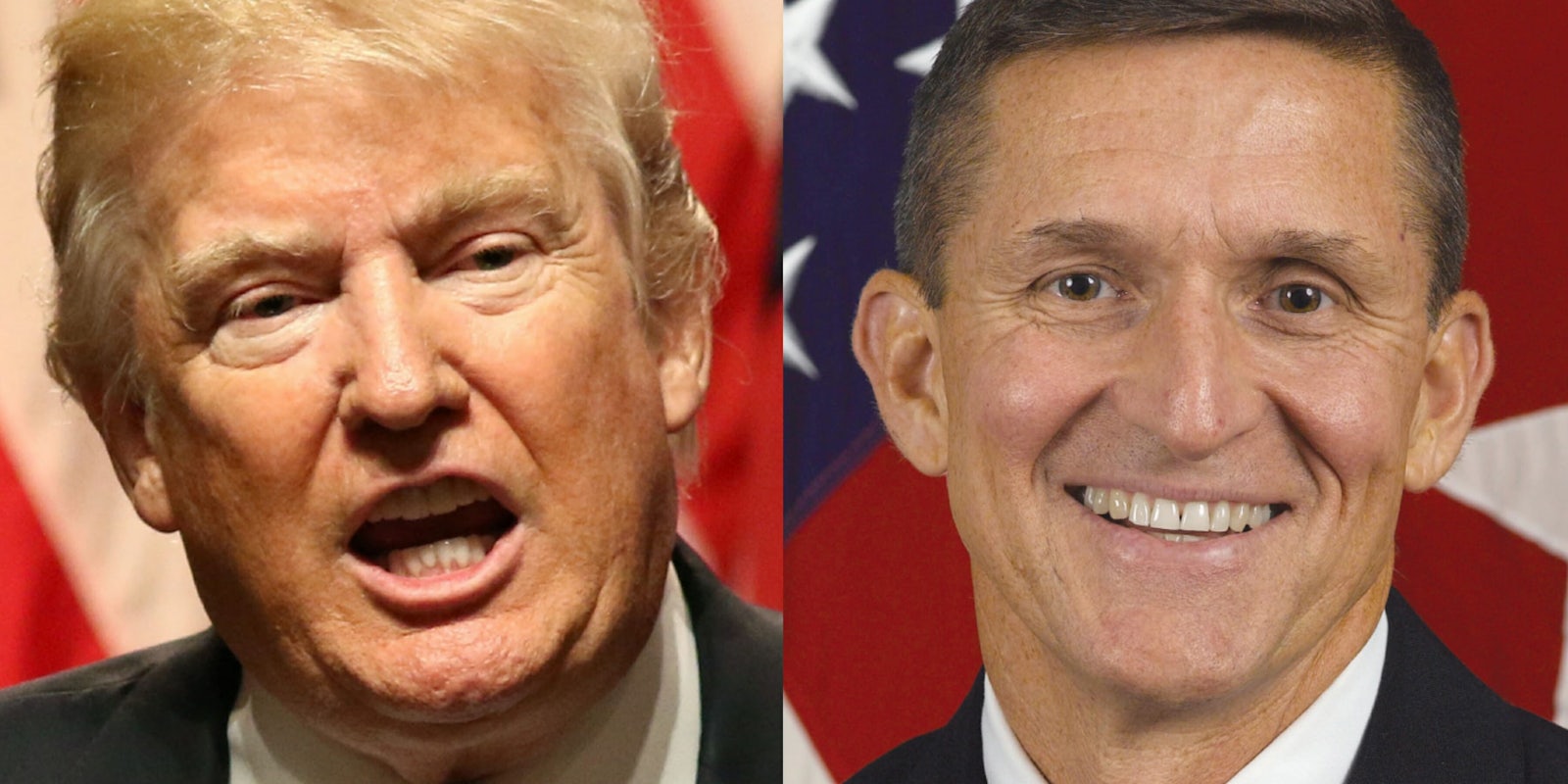Before Thursday, if you’d asked President Donald Trump what he thinks of political operatives who ask authorities for immunity, you’d get a clear answer: They’re guilty of something.
The same goes for retired Lt. Gen. Michael Flynn, Trump’s fired national security adviser, whose attorney on Thursday requested his client receive immunity from House and Senate committees investigating Russia’s election meddling as well as the FBI. The president is now in a corner.
Trump demanded Flynn resign in mid-February after reports revealed that he had discussed U.S. against Russia sanctions with Russian ambassador Sergey Kislyak and lied to Vice President Mike Pence about the nature of his discussions. With the House and Senate Intelligence Committees and the FBI investigating Russia’s attempts to manipulate the presidential election, including potential ties between Trump’s team and Russian operatives, Flynn’s testimony could prove explosive.
Amid reports that Hillary Clinton staffers had been granted immunity as part of the FBI’s investigation into the former secretary of state’s use of a private email server, Flynn told Meet the Press in September 2016 exactly what he thought about immunity deals.
“When you are given immunity, that means you probably committed a crime,” Flynn said.
Trump echoed Flynn’s attack on Clinton and her team at a September 2016 rally in Florida. “If you are not guilty of a crime, what do you need immunity for? Right,” he said. At a Wisconsin rally the following day, Trump repeated this belief: “The reason they get immunity is because they did something wrong; if they didn’t do anything wrong, they don’t think in terms of immunity.”
Then-candidate Trump continued this attack against his Democratic opponent intermittently over the next month.
ATTN: @HillaryClinton – Why did five of your staffers need FBI IMMUNITY?! #BigLeagueTruth #Debates
— Donald J. Trump (@realDonaldTrump) October 10, 2016
Now that one of Trump’s closest advisers is playing the immunity card, the president is taking a remarkably different approach: deflect the blame.
Mike Flynn should ask for immunity in that this is a witch hunt (excuse for big election loss), by media & Dems, of historic proportion!
— Donald J. Trump (@realDonaldTrump) March 31, 2017
Flynn’s attorney, Robert Kelner, insists the former Trump adviser “has a story to tell.” But, of course, remains unclear what information Flynn has to shared with investigators, and neither the House, Senate, nor the FBI has responded to his offer to testify. Even if he does testify, there’s no guarantee his tale will incriminate anyone else—some legal analysts argue that the public nature of this immunity deal signals that Flynn has little to say.
One thing is clear: Flynn is trying to protect himself, and, as Trump said, if you’re not guilty of a crime, what do you need immunity for? What, indeed.


